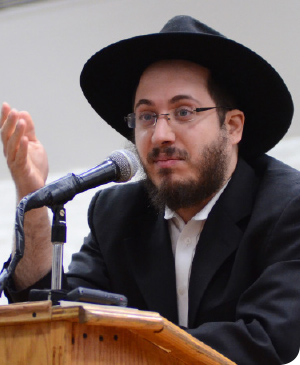Dear Reader sh’yichyeh,
Our previous article concluded with the promise of a discussion regarding the role of a Jewish king through the eyes of the Torah.
 In Parshas Shoftim (17:15), the Torah tells us: “Som Tasim Olecha Melech” – you should appoint a king upon yourselves. It is one of the three mitzvos that the Jewish nation is obligated to fulfill upon entering Eretz Yisroel; the other two are to destroy Amalek and to build the Beis HaMikdash.
In Parshas Shoftim (17:15), the Torah tells us: “Som Tasim Olecha Melech” – you should appoint a king upon yourselves. It is one of the three mitzvos that the Jewish nation is obligated to fulfill upon entering Eretz Yisroel; the other two are to destroy Amalek and to build the Beis HaMikdash.
As we approach Yud Shvat, the beginning of the Nesius of the Rebbe, I will share a vort that I heard from Rabbi Levi Garelik: If you look at the first Maamarim of the last three Rebbeim of Chabad, you will see that they correlate with the three above-mentioned Mitzvos.
The Rebbe Rashab’s first Maamer was “Kesser Yitnu Lecha – A crown they will give you”. This refers to the appointment of a king. The Frierdike Rebbe’s first Maamer was “Reishis Goyim Amalek,” about the obligation to wipe out Amalek. The Rebbe’s first Maamer is “Basi L’Gani – I have returned to My garden.” This pasuk refers to the building of the Beis HaMikdash.
We find something very fascinating regarding this mitzva to appoint a king. When the Jewish people actually ask for a king (Shmuel 8:5), we find the following response: “And the thing was displeasing in the eyes of Shmuel, when they said, ‘Give us a king to judge us,’ and Shmuel prayed to Hashem…. And Hashem said to Shmuel, ‘Listen to the voice of the people, according to all that they will say to you, for they have not rejected you, but they have rejected Me from reigning over them.’”
This seems very hard to understand. Why would such a request seem less than acceptable? The Torah explicitly states that the appointment of a king is an obligation incumbent on the Jewish nation!
The Rebbe (Likkutei Sichos Vol. 24 page 104) explains:
There are two types of kings:
1) A King whose main function is to maintain peace and order in the kingdom. He is the highest authority of power in the land. This is the role of a non-Jewish king.
2) A King is spiritually higher than the rest of the generation, and he connects the people to Hashem and leads them in that direction. That is his primary role. This is the role of the Jewish king.
When the Jewish people asked for a king, the said the following (Ibid): “Behold, you have grown old, and your sons do not walk in your ways. Now, set up for us a king to judge us like all the nations.” In other words, they were looking for the non-Jewish type of a king. This is what upset Shmuel and Hashem. A true king is the second kind of king, as explained above.
Rabbi Avtzon is the Rosh Yeshiva of Yeshivas Lubavitch Cincinnati and a well sought after speaker and lecturer. Recordings of his in-depth shiurim on Inyanei Geula u’Moshiach can be accessed at http://www.ylcrecording.com.